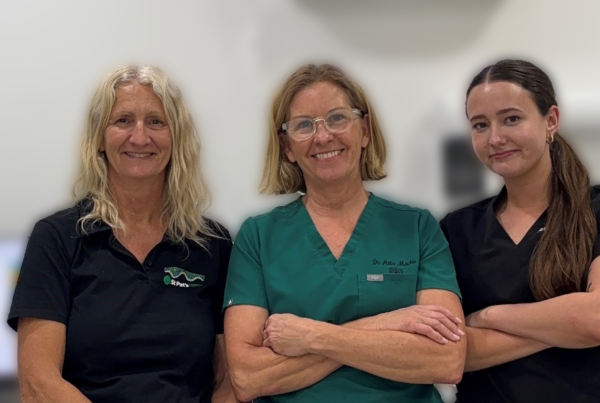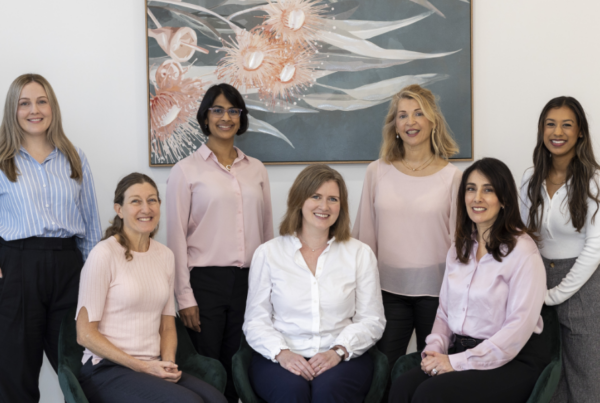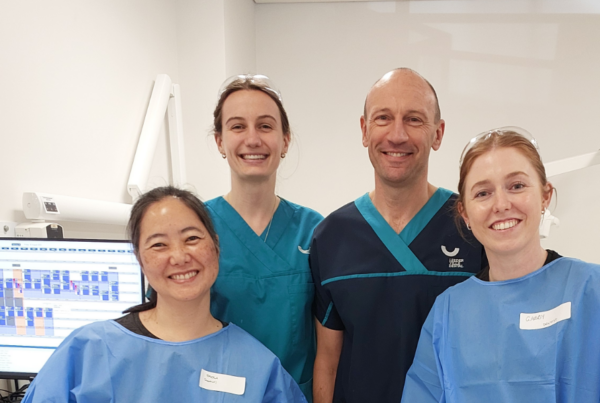As well as serving as the current Chair of the ADA DHF in WA, Dr Russell Gordon has a long history of volunteerism. We spoke to him about the importance of giving back.
Beginnings
Russell says the importance of pro bono work was instilled back in his days as a dental student. “Most of us came out with the same haircuts; we were taught we are professionals, so should do no harm and do what we thought was the best for the patient,” he recalls. “Back in those days only a dentist could own a dental surgery and as part of that, lecturers would talk to us about the obligation to provide pro bono work for people who couldn’t pay. In my practice I did lots of free extractions when people would turn up in pain. I didn’t put a sign up that said: ‘free dentistry’, but I felt it was part of my obligation.”
On a personal level, Russell says his desire to do more volunteerism increased when he had children – reflecting on the contrast between the upbringing of his children, his own upbringing, and that of his father.
“My father’s mother died during childbirth and then he spent four years in an orphanage,” Russell says. “He grew up during the Depression, then they sent him to war and a lot of his friends got killed. You think about how lucky you have the parents that you’ve got, lucky to be born in Australia – there is an awful lot of luck in life, so it is nice to give back. You think more about that when you have children; it changes your attitude.”
As happens in life, Russell was very busy running a dental practice (from 1980 to 2019) so it was when his children got a bit older, Russell considered going overseas to volunteer, with the thought that his wife could then join him after a volunteering stint for a well-deserved holiday.
Dental Rescue Days
It was around this time, Russell noticed Dr Dennis Gregory’s advertisement in the Western Articulator for practices to run a Dental Rescue Day (DRD). It seemed to be the perfect fit, so Russell first hosted a Dental Rescue Day at his former practice, Rockingham
Dental Centre, back in 2006.
“I had a seven-surgery practice with my associate Dr Gerard Parkinson,” Russell recalls. “When I mentioned the ad to Gerard, he was immediately on board, and we asked our staff if they would be willing to work on a Saturday to provide treatment free for homeless people. I was surprised and gratified that we had 100 per cent turn up to that day, plus the daughter of our practice nurse manager who was still at high school but wanted to help out.
“The atmosphere that first day was like a carnival,” he says. “Dentistry is a helping profession, and it was easy to see the people drawn to it were really enjoying the fact that they had particular skills that they could use to change some people’s lives. All the dentists adopted some patients that day to finish off treatment that required further appointments.”
The rest, they say, is history. Russell, Gerard and the Rockingham Dental Centre team hosted many Dental Rescue Days and to this day, the practice is active in volunteerism and Dental Rescue Days.
“Once you hear some people’s stories it inspires you to help them if you can,” Russell adds. “I also feel that it strengthened the regard of our staff for the place they worked at as they enjoyed being a part of a caring practice. In those days we used to print practice updates for our patients and would include photos from DRDs. From the conversations they initiated with our regular patients, I always felt that our standing in the community was enhanced by our volunteering efforts. Subsequently, Hari Menon took over the practice from us. He had worked for us and volunteered in our DRDs and now continues that tradition.
“I never ended up going overseas to volunteer – there was so much to do here,” he laughs.
Treatment provided
Russell says at Dental Rescue Days in private clinics, the aim is to provide the most urgent treatment. “Our aim is to relieve pain and try and keep people safe until they can get more comprehensive treatment in the Government system,” he says.
“The Adopt a Patient Scheme allows individual dentists to bring patients back to do more extensive work,” he adds. “Sometimes just by restoring an anterior tooth or making a denture you can totally turn around someone’s appearance for a job interview, which is the most basic way you can help someone get themselves out of homelessness.
“The Rebuilding Smiles Programme has some funding that is designed to help survivors of domestic violence. Some wonderful work has been done by volunteering dentists in rehabilitating patients under this programme.”
St Pat’s
Russell has also had a long-standing involvement with St Pat’s. “The ADHF had acquired some donated dental equipment and I heard that St Pat’s Community Centre wanted to open a dental clinic, so we offered the equipment to them,” he recalls. “They gratefully accepted the equipment but said that although they had sourced funds to build a clinic, they had no expertise to run it and would we partner them. The clinic opened in 2016 initially with student DAs from Dental Nursing Australia and volunteer dentists. Over time, St Pat’s has raised money and the ADHF won a $100,000 grant from Impact 100 Fremantle, which has allowed a full-time nurse to be employed. The ADHF was also lucky enough to secure an account from Henry Schein Cares to supply materials. A-dec has supplied a lot of equipment and support and Oceanic Dental provide free laboratory work. Many other dentists have donated instruments and materials.
“It has taken a lot of work not the least of which is guiding an institution not familiar with the exacting requirements of running a safe and efficient dental surgery. However, St Pat’s clinic has been a great addition to the volunteer options of dentists who don’t have their own clinics and has been extremely successful in providing many hundreds of thousands of dollars’ worth of free treatment for homeless people.”
Russell adds there are many people with goodwill in the industry that have made the running of the clinic possible, including the team at Henry Schien that provide a monthly account for materials and A-dec’s Joe Minervini, who maintains the equipment at St Pat’s on an ongoing basis.
Making a difference
Russell admits he has certainly had more hugs from patients at Dental Rescue Days than he has ever received from his regular private practice patients. “I think it is because they often feel overwhelmed. Firstly, because their life situation may be such that they can’t see a way they can access treatment even through the Government system because of its waiting lists and the fact it requires a co-payment. Secondly many homeless people have slipped through the cracks in our community and feel that no one cares about them. When they come across a friendly face (even though they are often mortally afraid of the dentist) their gratitude is magnified.“ADA DHF WA Coordinator Andrea Paterson often tells us of letters from case workers passing on the appreciation of patients who lack the resources to do that themselves,” he adds.
Russell says the Dental Rescue Day that stands out most in his memory was one where he had two female patients in the same morning who were about the same age as his elder daughter. “It happened that both required a full upper clearance and immediate denture,” he recalls.


